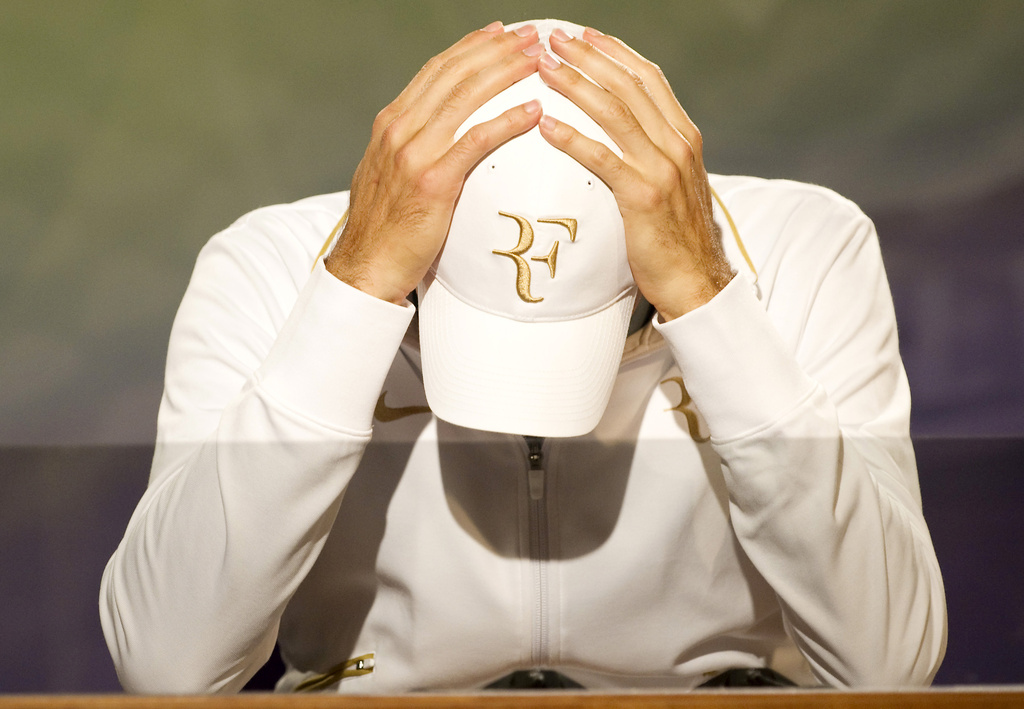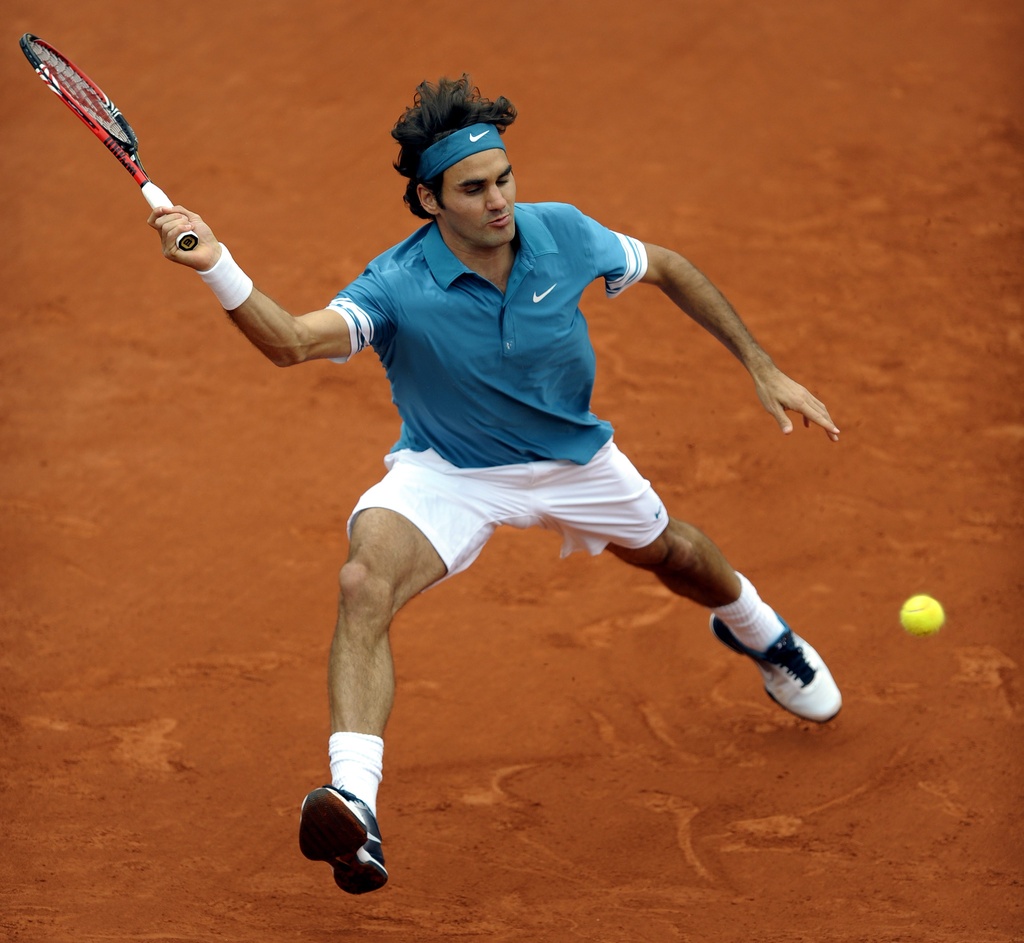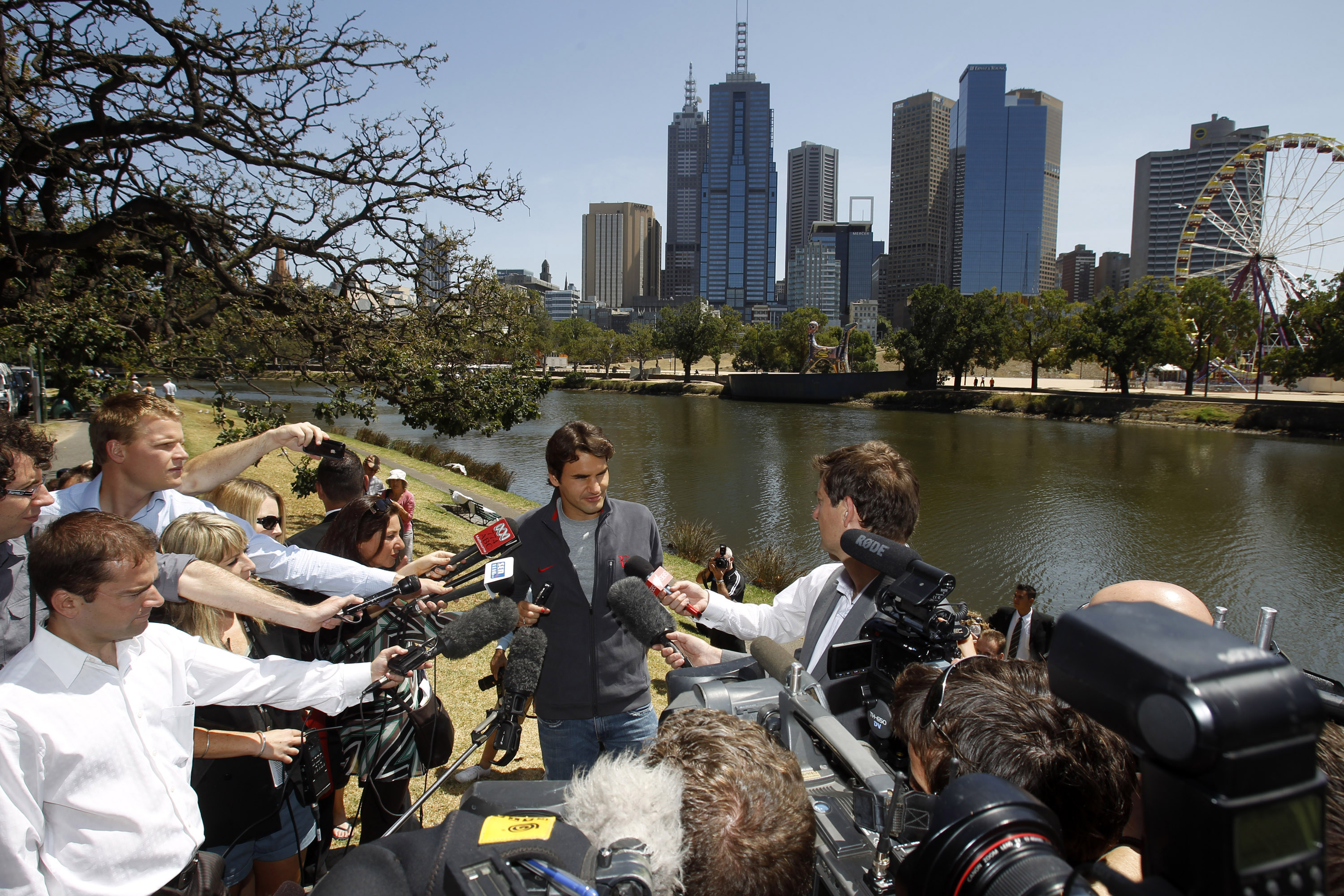
Federer remains on comeback trail

A final in Toronto and a win in Cincinnati have shown that Swiss tennis superstar Roger Federer is close to his best form ahead of the US Open that begins on Monday.
But questions are being raised about whether he still has the mental and physical strength at the age of 29 to add another grand slam trophy to his mantelpiece collection.
Since his defeat in the semifinal of the 2008 Australian Open against Serbia’s Novak Djokovic, there has been plenty of speculation about the end of King Roger’s reign. But each time he has been written off, he has come back with spectacular victories.
This year has been no exception after losses in the quarterfinals at the French Open and at Wimbledon.
A rough patch, loss of concentration, physical pain and a lack of confidence on important points seem to indicate the Swiss champion is tired. To overcome these problems, he has finally decided to hire a new trainer, American Paul Annacone.
After reaching the final in Toronto though, Federer denied he was on the downward path. “It’s ridiculous to say something like that, everything is changing very quickly,” he said.
“People should get used to seeing more open tournaments,” he added.
Federer will probably never dominate world tennis like he did between 2004 and 2007, and he knows it. “I can’t win everything, something I’ve always realised.”
“I was shocked to see how dominant I was for so long. But I’m still close to the number one ranking,” he pointed out.
Sixth US Open title?
His win in Cincinnati a week ago tends to confirm this. With the US Open about to begin, Federer is the bookmakers’ favourite, despite being seeded number two, with a good chance of picking up a sixth title at Flushing Meadows.
Federer turned 29 a few weeks ago. It was at the same age that Pete Sampras’s career started going downhill, although the American bowed out two years later with a final win at the US Open.
Can Federer keep on playing? The head of the sports medicine unit at the Lausanne University hospital, Gérald Gremion, points out that Federer has been playing hours of tennis daily for nearly 20 years.
“Playing at that level, training non-stop, will obviously wear down your body,” he told swissinfo.ch.
Back and leg pain were blamed for Federer’s loss to Berdych at Wimbledon in June. For Gremion, the explanation is perfectly credible. However he hasn’t noticed any signs of physical decline.
“Federer still moves so well on court,” he added.
In February, Federer blamed a lung infection for his withdrawal from the Dubai Open. Gremion reckons it could well have been a consequence of the bout of glandular fever the player suffered from in 2008.
Fatigue
“Phases of fatigue can reappear within the medium and long term. Top athletes, who train more than is probably reasonable, are more fragile when it comes to viral infections,” he said.
Never-ending travel, jet lag, daily duties and a busier family life are just some of the factors that can contribute to wearing down the body.
“The physical aspects also have a bearing on the player’s mental state,” added Gremion. “If his condition is even only slightly less than optimal, it can become a catastrophe.”
For the specialist, this helps explain the defeat against Berdych. “Because of the pain, Federer only played at 95 per cent of his capacity, while he really needs to play at 110 per cent to win all his matches.”
Sports psychologist Mattia Piffaretti agrees. “When a top athlete is injured or sick and is not at the top of his game, he feels vulnerable,” he explained.
Piffaretti believes the bout of glandular fever may have helped Federer. “He realised he could work his way out of difficult situations, so it was an important mental experience for the rest of his career,” he added.
Motivation
Gremion, who met the Swiss star when he was just 12, is optimistic about the player’s career.
“Our knowledge of modern training methods helps extend an athlete’s career. Federer knows when to back off, give himself time to recover and has a team of very competent people working with him,” he said.
“Others burn the candle from both ends. That was Nadal’s case, but he is learning to manage his timetable better.”
When Federer decides to stop playing, it probably won’t be because of physical problems. “Motivation plays an essential role. The day he wakes up and doesn’t want to train, it will be all over.”
Piffaretti agrees. “At his level, it’s mental fitness that decides the outcome, not injuries,“ he told swissinfo.ch.
“Many athletes who reach the top tend to sit down and enjoy the view. But if Federer has stayed there so long, it’s because he has always found new ways of motivating himself, of changing his game against opponents who have analysed his playing style, working hard and staying humble.”
Samuel Jaberg, swissinfo.ch (Adapted from French by Scott Capper)
The US Open is played this year from August 30 to September 12.
In the 2009 final, Federer was defeated by Argentina’s Juan Martin Del Potro in five sets. Del Potro will not be defending his title after injuring himself in January.
Federer’s loss put an end to his undefeated run at Flushing Meadows since 2004, collecting five titles along the way and winning 33 matches in a row.
Only American Bill Tilden managed to do better in the 1930s, winning six straight Open titles.
A player who holds all four grand slam titles – the Australian Open, the French Open, Wimbledon and the US Open – at the same time is said to have achieved the Grand Slam. A “true” Grand Slam is when all titles are won in the same calendar year.
Rod Laver is the only male player in the open era (post-1968) to achieve a Grand Slam (which was also “true”), in 1969. Andre Agassi and Roger Federer have won all four titles but in different years (a career Grand Slam).
Grand slam titles (open era):
16: Roger Federer
14: Pete Sampras
11: Björn Borg
8: Andre Agassi, Jimmy Connors, Ivan Lendl

In compliance with the JTI standards
More: SWI swissinfo.ch certified by the Journalism Trust Initiative







































You can find an overview of ongoing debates with our journalists here . Please join us!
If you want to start a conversation about a topic raised in this article or want to report factual errors, email us at english@swissinfo.ch.